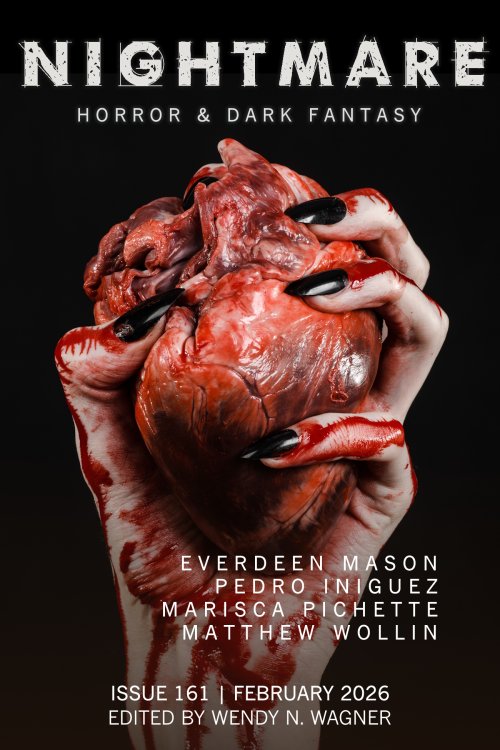What was the impetus for “The Music of the Dark Time”?
I’d been listening to Beethoven’s late string quartets, and the image came to me of the prisoner/musicians who played in the death camps playing that particular work, and the story grew out of that.
This is a powerful story dealing with unspeakable, real-life horror — the use of music by Nazis in concentration camps to terrorize, humiliate, and pacify prisoners, combined with the modern day horror of a psychologically fragile survivor being forced to re-live the experience for someone else’s economic gain. Was it difficult to write?
Not really. I usually think about stories for some time before I begin to write, and the story was worked out fully in my mind before I started.
Are you a classical music fan, or was that something you had to research for this piece?
I’m a huge classical music fan. I’ve listened to and enjoyed it ever since I was a child. I play piano, and am a trained singer. My wife plays first stand violin in the Hershey Symphony Orchestra, so we’re really into classical.
As well as being a prolific, award winning author, you’re an accomplished actor. Would you say being an actor informs your writing in any way, or vice versa?
It does. I think coming to writing out of acting has made my work far more character-oriented. For me, character is the most important element. I like to climb inside characters’ skins and try and think and react as they would.
What do you have in the works at the moment?
A new short story collection, The Night Listener and Others, is out from PS Publishing; Borderlands Press is doing my Little Blue Book of Bibliomancy, and next year will see the release of Psycho: Sanitarium from St. Martin’s Press. It’s the first sequel to Robert Bloch’s Psycho since Bloch himself, and it takes place immediately after the events of Psycho. It was a dream to be able to use Norman Bates, one of the true icons of fiction, as a character.









